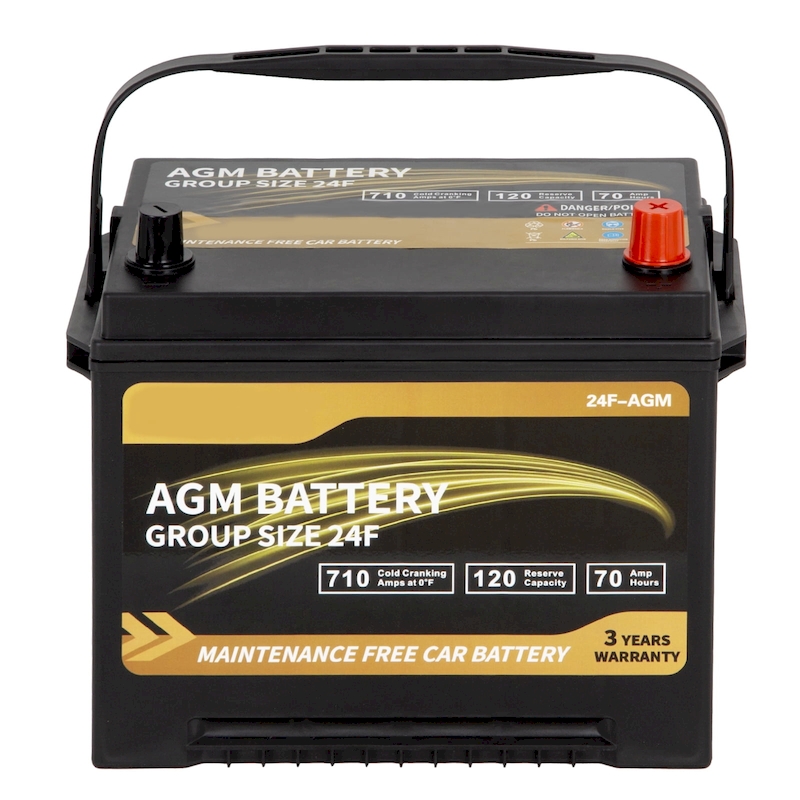As responsible vehicle owners, individuals often find themselves contemplating where to dispose of car batteries near me when the time comes to replace their car batteries. Car batteries contain hazardous materials, and improper disposal can pose significant risks to the environment and public health. It’s crucial not only for the welfare of the planet but also for compliance with local regulations that we learn how to dispose of our car batteries in a safe and sustainable manner. Knowing the appropriate disposal methods is essential for protecting our environment, reusing valuable materials, and adhering to regulations regarding hazardous waste. In this comprehensive guide, we will explore the environmental impact of discarded car batteries, the available disposal methods, and where to find local resources for proper battery disposal.

Understanding Car Batteries and Their Environmental Impact
Car batteries play a significant role in the functioning of vehicles, but they also carry considerable environmental implications when not disposed of properly. Here’s an overview of the types of car batteries typically used and their environmental risks:
- Lead-Acid Batteries: Most conventional car batteries are lead-acid batteries, composed of lead, sulfuric acid, and other materials. While lead-acid batteries are recyclable, improper disposal can lead to toxic leaks of lead and acid into the environment, contaminating soil and water supplies.
- Lithium-Ion Batteries: More recently, electric vehicles (EVs) often use lithium-ion batteries. While they contain valuable materials like lithium, cobalt, and nickel, they can also pose environmental threats if improperly discarded, as these metals can be hazardous to ecosystems.
- Environmental Implications: One of the primary environmental concerns surrounding improper car battery disposal is the release of heavy metals and acids, which can lead to soil and water pollution. Additionally, when batteries end up in landfills, they can contribute to waste management issues, as hazardous materials can leach into the ground over time.
- Recycling Potential: The good news is that both lead-acid and lithium-ion batteries are recyclable. Approximately 98% of the components can be recovered and reused in new batteries and other products, making proper disposal not just an environmental necessity but also a valuable opportunity for resource recovery.
Understanding these facts highlights the importance of knowing where to dispose of car batteries near me responsibly.
Legal Regulations on Battery Disposal
Local regulations surrounding car battery disposal can vary significantly across regions. Understanding your area’s laws regarding battery disposal is crucial to avoiding potential fines and contributing to environmental protection.
- Hazardous Waste Regulations: Many states categorize car batteries as hazardous waste due to the potential for harm to the environment and public health. There are strict regulations regarding the disposal of hazardous materials, and improper disposal can lead to legal penalties.
- Battery Disposal Laws: Some states require that retailers take back old batteries when a new one is purchased. Others may offer designated recycling events or collection sites for hazardous waste.
- Compliance and Responsibility: Always familiarize yourself with your local waste management regulations. The responsibility to dispose of batteries properly ultimately falls on you as the consumer, and being informed about local rules is essential for compliance.
Familiarizing yourself with legal regulations will help you avoid the pitfalls of improper disposal and ensure that you are doing your part for both the environment and your community.
Where to Dispose of Car Batteries Near Me (Local Resources)
When searching for solutions on where to dispose of car batteries near me, various local resources and options are available to assist. Here are some common locations where you can safely dispose of your old car batteries:
- Auto Parts Stores: Many auto parts retailers, such as AutoZone or Advance Auto Parts, offer battery recycling programs. When purchasing a new car battery, inquire about disposal options for your old battery.
- Local Recycling Centers: Many recycling facilities accept car batteries. Check with your local recycling center to see if they have designated drop-off points for hazardous materials like batteries.
- Waste Management Facilities: Your municipal waste management department may offer battery collection programs or designated drop-off days for hazardous materials. Be sure to contact them for details.
- Automotive Service Centers: Many auto repair shops and service centers will also accept old batteries for recycling. When getting your vehicle serviced, inquire about battery disposal options.
- Event-Based Collections: Communities occasionally organize hazardous waste collection events, during which residents can drop off items like batteries. Check with your local government or environmental groups for upcoming events.
Using these local resources can significantly contribute to responsible battery disposal and reduce the environmental impact of hazardous waste.

Steps for Proper Battery Disposal
If you have determined the location where to dispose of car batteries near me, it is essential to follow specific steps to ensure the process is managed appropriately:
- Gather Necessary Materials: Make sure you have all necessary items for transporting the battery, such as gloves and a sturdy box or tray to avoid spillage or accidents.
- Inspect for Damage: Before transporting your old battery, check if it shows signs of damage, leaks, or cracks which could pose a risk. If visible damage is apparent, handle the battery with extra care.
- Transport Safely: When transporting the battery, use a non-conductive material to keep it secure. Avoid placing it in the trunk without ensuring it won’t roll around or break.
- Follow Regulations: Upon arrival at the drop-off location, follow any site-specific guidelines. Many places will require you to sign in, drop the battery in a specific area, or wait for assistance.
By following these steps, you can contribute to responsible disposal and ensure that your actions align with environmental safety.
The Importance of Recycling Car Batteries
Recycling car batteries plays a critical role in environmental conservation and resource management. Here’s why it is essential to prioritize battery recycling:
- Resource Recovery: Recycling enables the recovery of valuable materials, including lead, cobalt, lithium, and acid, which can then be used to manufacture new batteries or other products. This conserves natural resources and minimizes the need for new raw materials.
- Reduction of Pollution: Proper recycling reduces the quantity of hazardous materials that can escape into the environment when batteries are improperly disposed of in landfills. This, in turn, reduces the risks associated with soil and water contamination.
- Waste Management: Battery recycling helps alleviate the strain on landfill space, making recycling initiatives crucial for managing our waste effectively. Given the finite capacity of landfills, recycling strategies take on increasing importance as waste generation rises.
- Economic Benefits: Encouraging recycling activities can generate jobs in recycling facilities and contribute to the overall economy. The circular economy created through recycling further promotes sustainability and reduces costs.
Understanding these benefits underlines why it is vital to consider recycling your car batteries rather than simple disposal.
Tips for Choosing and Using Car Batteries
When thinking about where to dispose of car batteries near me, it’s also beneficial to think about the procurement and usage of car batteries. Here are some tips:
- Choose Quality Batteries: Always opt for high-quality batteries that come with warranties. Known brands may offer better performance and longer life, reducing the frequency of disposal.
- Regular Maintenance: Lastly, keeping your battery in good health through regular inspections and maintenance keeps it functioning well for a longer time. This can save you money and reduce environmental impacts.
- Understand Battery Life: Familiarize yourself with your battery’s expected lifespan, as it will typically range based on usage and weather conditions. Knowing when to replace it can help mitigate surprises down the line.
By following these tips, you can help maintain your vehicle’s battery health while developing a greater sense of responsibility regarding disposal and recycling practices.

Conclusion
In conclusion, understanding where to dispose of car batteries near me is essential for every vehicle owner seeking to protect the environment and comply with legal regulations. Car batteries contain hazardous materials that can be detrimental to the environment if not disposed of properly. By exploring local resources such as auto parts stores, recycling centers, automotive service centers, and waste management facilities, you can easily find appropriate disposal options.
Moreover, following responsible practices when handling and disposing of batteries plays a vital role in ensuring our environment remains safe and sustainable for future generations. Prioritizing battery recycling not only helps conserve vital resources but also contributes to the health of our ecosystems.
As responsible citizens, we all share the duty of managing waste effectively through informed choices and actions. Armed with knowledge about battery disposal, you can make a positive impact when it comes to your old car batteries and foster a healthier planet for everyone.


